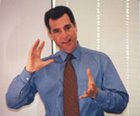 Well, in honor of the new re-release of that classic apocalyptic story.... Chicken Little.... my thoughts today turn to a really great book I read a while ago.
Well, in honor of the new re-release of that classic apocalyptic story.... Chicken Little.... my thoughts today turn to a really great book I read a while ago.The Ingenuity Gap, by Thomas Homer-Dixon.
Since I am sitting here at Chapters, drinking coffee as though the end-of-the-world is scheduled for later this evening, I took a little stroll and picked this book from the shelf, and am revisiting its ominous contents....
The author, who is Director of the Peace and Conflict Studies Program and Associate Professor in the Department of Political Science at the University of Toronto, states his purpose in the Prologue:
"In this book I'll argue that the complexity, unpredictability, and pace of events in our world, and the severity of global environmental stress, are soaring. If our societies are to manage their affairs and improve their well-being they will need more ingenuity - that is, more ideas for solving their technical and social problems. But societies, whether rich or poor, can't always supply the ingenuity they need at the right times and places. As a result, some face an ingenuity gap: a shortfall between their rapidly rising need for ingenuity and their inadequate supply."
After reading this book in the spring of 2003, I believed the above premise-statement to be very true. [To have much truth value.] I recall e-mailing the author and receiving a prompt reply. We dialogued a bit about some specific questions I had at the time, and he was very gracious and knowledgeable.
I still believe him. I believe the basic argument of this book. It is very convincing, and it is (what seems to me) an unbiased look at the real situation facing our planet not only environmentally, but socially, and economically.
Homer-Dixon has travelled the world, exploring the situations that give rise to the "ingenuity gap". Partial exposure to the world (Western prosperity etc.), can lead us to adopt misinformed and unrealistically optimistic conclusions about how we will manage future difficulties. This book takes off the rose-colored glasses we may be wearing, exposing us to some harsh UV rays of reality!
Can the world be sustained by solar energy?
This books says NO!
In 1960 the income of the richest 20% of the world's population was 30 times that of the poorest 20%.
In 1998, it was 82 times greater.
Let this book educate you to the coming problems that are likely to result from this increasing (and unchecked) economic disparity. Wow, it is sobering.
 All of this is startling, but nowhere is the ingenuity gap more disturbing than in the problems related to the environment.
All of this is startling, but nowhere is the ingenuity gap more disturbing than in the problems related to the environment. There are existing challenges that we can barely understand, let alone address. We've all heard about the greenhouse effect. Global warming. Blah,blah, blah! Right? Ozone layer, big hole... big deal! Seriously, even the term “global warming” can sound like something we might want to welcome, at times! Am I right?
“Hey! Are you heading down to the beach this weekend?”
“Nah. Forecast says it’s going to be a bit chilly out.”
“Hmmm. Well. We can always hope for some global warming!”
Maybe that could get a laugh in some standup sketch. Or on a blog. But when we say that this "warming" factor could change the earth's overall temperature by 2 degrees, we should remember that the difference between today's climate and the coldest period of the last ice age, is only about 5 degrees!
I mean, get out the Gore-Tex! This is serious stuff.
Population?
Between 1960 and the year 2000, the population of the world has doubled! Currently, if everyone were spread out across the habitable land of the earth, we would all be within calling distance of each other (about 100 metres apart, in every direction). This is sobering.
Homer-Dixon travels the world within the pages of this book. This guy is really collecting the Air-Miles! He lets us tag along: through North, Central, and South America, Europe, Asia, India. The reader might as well be a piece of carry-on luggage! He puts together a very eloquently written synopsis of the challenges that mankind faces. And there are portions of this book that [written prior to the events of Sept. 11, 2001] are just downright PROPHETIC!
The book is divided into four parts/sections, which are presented as questions.
1. How Are We Changing Our Relationship To The World?
Dramatically! Between 1/3 and 1/2 of the planet's land area has been fundamentally transformed by our actions. (p.54) Let's not even get into what we have been doing to the oceans! (But he does).
2. Do We Need More Ingenuity To Solve The Problems Of The Future?
Yes! If we were to know the true state of our situation, we would feel the sort of panic one feels when strapped into an out-of-control jet liner on its way to a crash-landing. (I'm extrapolating/summarizing here).
3. Can We Supply The Ingenuity We Need?
Probably not. It is theoretically possible, but unlikely, given the current rate of gap widening set against the boundaried limitation of our brains. It is much easier to create certain problems than solve them.
4. What Does The Ingenuity Gap Mean For Our Future?
It means we ought to be in favor of getting our act together.
So... not exactly a book to stuff in Grandma's Christmas stocking over the mantle this December... but one that every thinking, concerned, person-that-thinks-they'll-be-around-for-a-while ought to read!
My favorite line? "Climate is an angry beast, and we are poking it with sticks."
**************
No comments:
Post a Comment